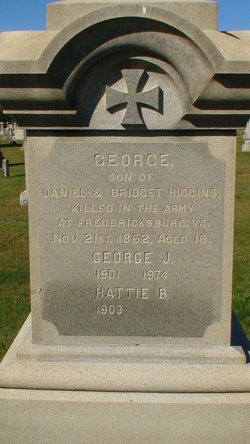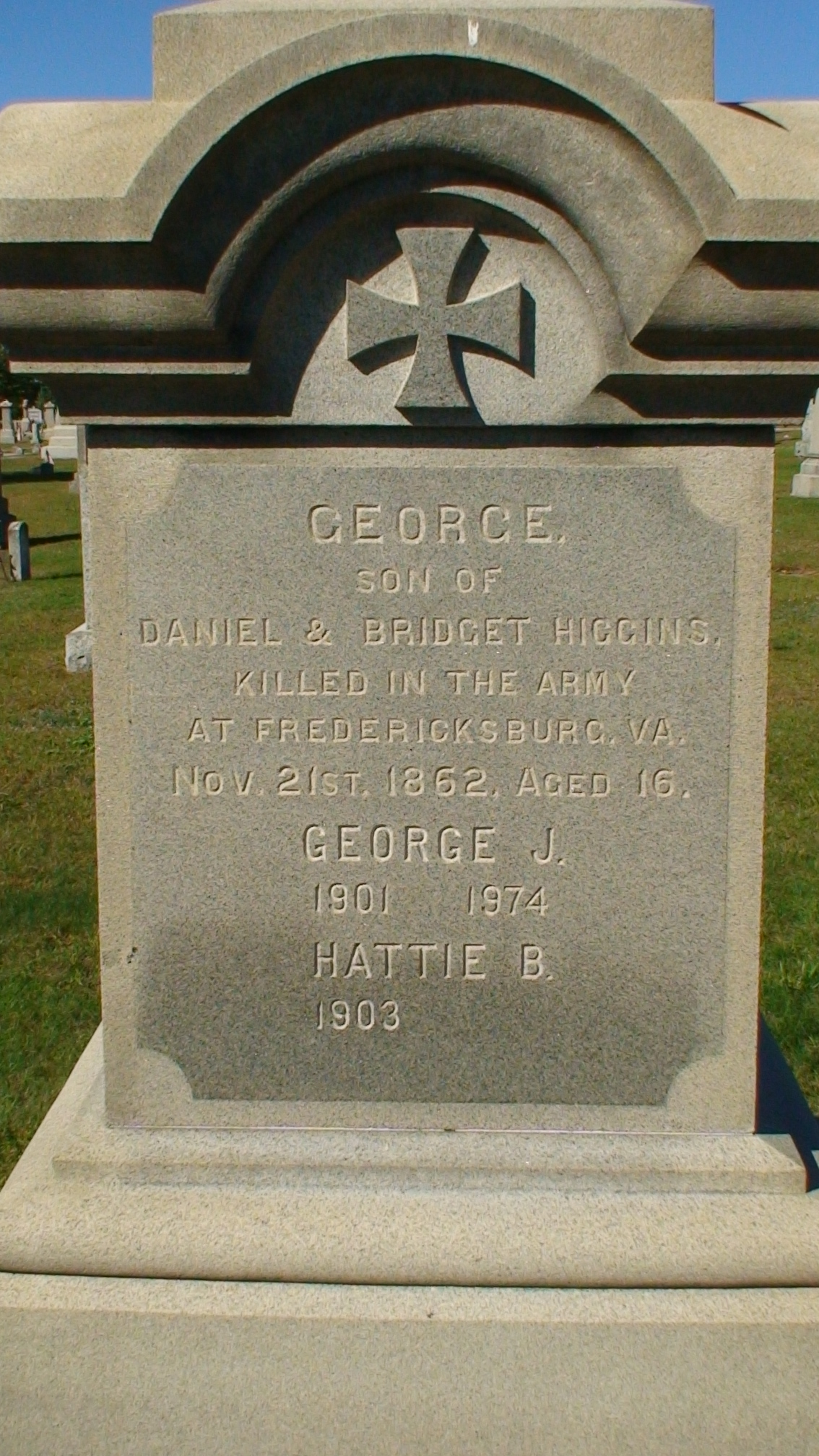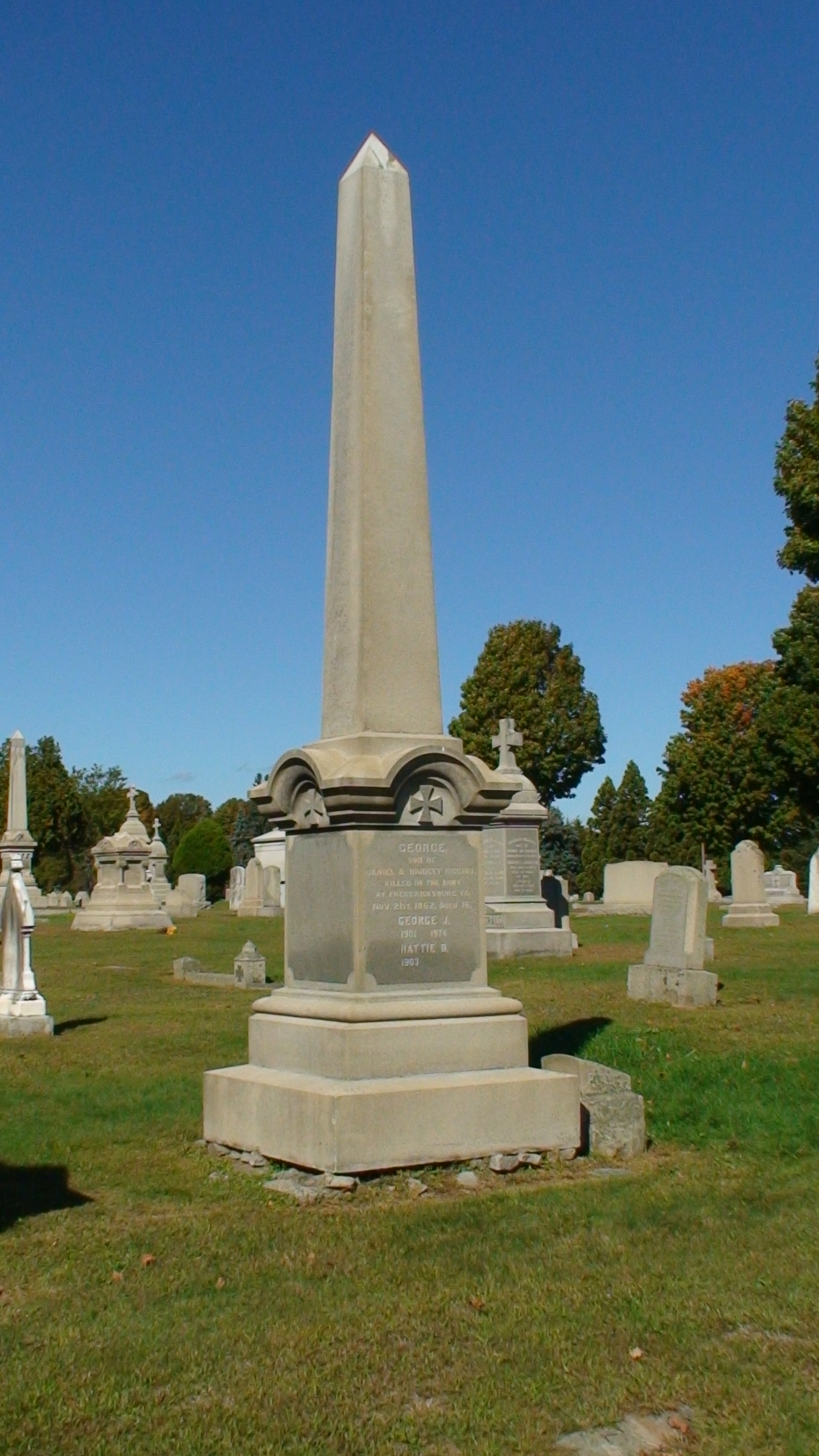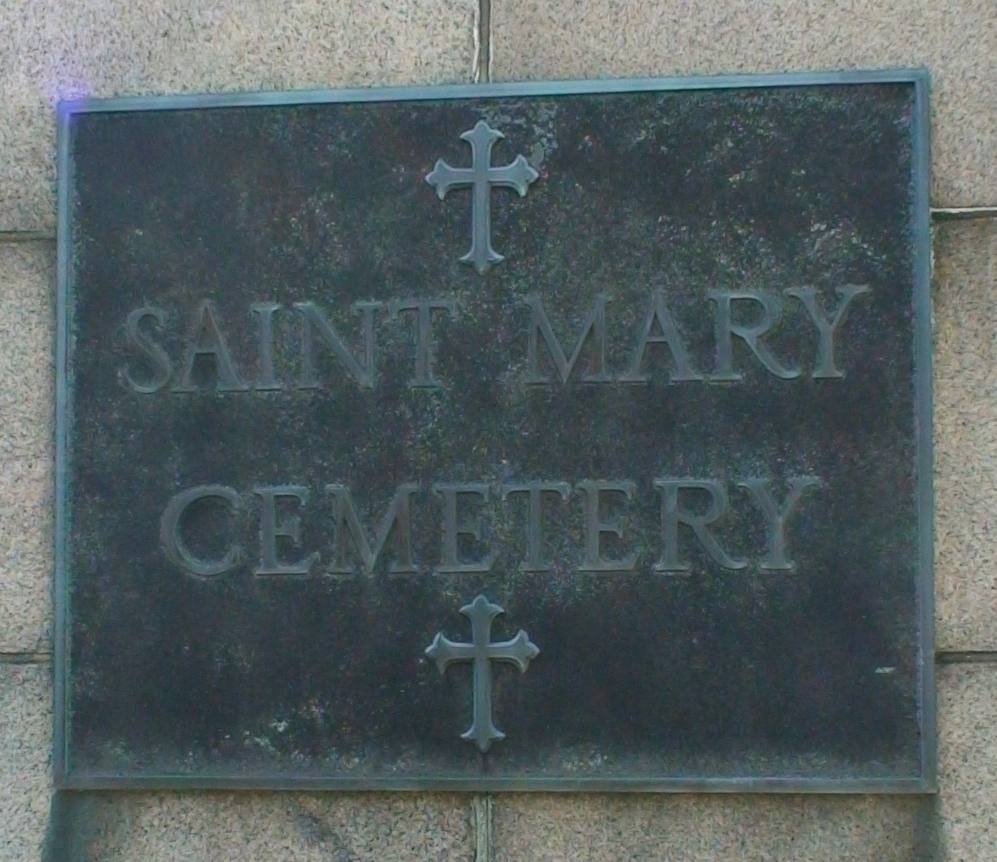Per "The history of Battery E, First regiment Rhode Island light artillery, in the war of 1861 and 1865, to preserve the Union" by George Lewis; Providence : Snow & Farnham, 1892. This book is available at http://books.google.com/.
On the 18th, moved at nine a. m., and passed through Bealeton Station, to about one mile beyond Morrisville, a hamlet of three houses. On the 19th left park at nine a. m. and marched some six miles and went into camp, passing on our way the First Rhode Island Cavalry, whose band was playing in a church. Our company teams during the day went to Belle Plain Landing after forage. Elias H. Mathewson, although an excellent driver, overturned his team, doing no special damage. November 20th, we made no forward movement, but a sad affair occurred which resulted in the death of George Higgins. It seems that Quatermaster-Sergt. Charles A. Brown was ordered with a detail of men, of whom Higgins was one, to go after some hay that was stacked some distance from camp. During the loading the men became engaged in a rude frolic, and after it had been unduly prolonged, the quartermaster sought to bring it to an end. This effort Higgins stoutly persisted in defeating, which brought on an encounter with sabres. The sergeant warned him to desist, to which he paid not heed, but continued with his reckless thrusts; when the sergeant, with no intention other than to prick him slightly with the point of the sabre, hit him in the abdomen, penetrating so deep that it caused his death the next day. It caused quite an excitement in the batter, and threats of revenge were freely hinted at among his friends. In the meantime Sergeant Brown reported the affair to the captain, who reported the case to General Birney, who refused to take any action in the matter. Captain Randolph then had the company formed into line and told them of Birney’s decision, and added that if any more threats were made he would severely punish the offenders, or words to that effect. Higgins was not over wise and by no means as vicious as his acts would seem to indicate. Nothing suited him better than a rough and tumble frolic, and when once started he never knew when to stop, and no amount of hard usage would in the least keep him quiet. H was what might be called the clown of the batter, and was more sinned against than sinning. He belonged in Canterbury, Conn, and was from eighteen to twenty years old.
On the 21st, Higgins was buried just in rear of camp. (Pgs. 121-122)
GEORGE HIGGINS. Canterbury, Conn. Mustered May 19, 1862; died Nov. 21, 1862, of sabre wound accidentally inflicted. (Pg. 510)
Per "The history of Battery E, First regiment Rhode Island light artillery, in the war of 1861 and 1865, to preserve the Union" by George Lewis; Providence : Snow & Farnham, 1892. This book is available at http://books.google.com/.
On the 18th, moved at nine a. m., and passed through Bealeton Station, to about one mile beyond Morrisville, a hamlet of three houses. On the 19th left park at nine a. m. and marched some six miles and went into camp, passing on our way the First Rhode Island Cavalry, whose band was playing in a church. Our company teams during the day went to Belle Plain Landing after forage. Elias H. Mathewson, although an excellent driver, overturned his team, doing no special damage. November 20th, we made no forward movement, but a sad affair occurred which resulted in the death of George Higgins. It seems that Quatermaster-Sergt. Charles A. Brown was ordered with a detail of men, of whom Higgins was one, to go after some hay that was stacked some distance from camp. During the loading the men became engaged in a rude frolic, and after it had been unduly prolonged, the quartermaster sought to bring it to an end. This effort Higgins stoutly persisted in defeating, which brought on an encounter with sabres. The sergeant warned him to desist, to which he paid not heed, but continued with his reckless thrusts; when the sergeant, with no intention other than to prick him slightly with the point of the sabre, hit him in the abdomen, penetrating so deep that it caused his death the next day. It caused quite an excitement in the batter, and threats of revenge were freely hinted at among his friends. In the meantime Sergeant Brown reported the affair to the captain, who reported the case to General Birney, who refused to take any action in the matter. Captain Randolph then had the company formed into line and told them of Birney’s decision, and added that if any more threats were made he would severely punish the offenders, or words to that effect. Higgins was not over wise and by no means as vicious as his acts would seem to indicate. Nothing suited him better than a rough and tumble frolic, and when once started he never knew when to stop, and no amount of hard usage would in the least keep him quiet. H was what might be called the clown of the batter, and was more sinned against than sinning. He belonged in Canterbury, Conn, and was from eighteen to twenty years old.
On the 21st, Higgins was buried just in rear of camp. (Pgs. 121-122)
GEORGE HIGGINS. Canterbury, Conn. Mustered May 19, 1862; died Nov. 21, 1862, of sabre wound accidentally inflicted. (Pg. 510)
Inscription
GEORGE
SON OF
DANIEL & BRIDGET HIGGINS
KILLED IN THE ARMY
AT FREDERICKSBURG, VA.
NOV 21st, 1862. AGED 16.
GEORGE J
1901 1974
HATTIE B
1903
Family Members
Advertisement
Explore more
Sponsored by Ancestry
Advertisement







